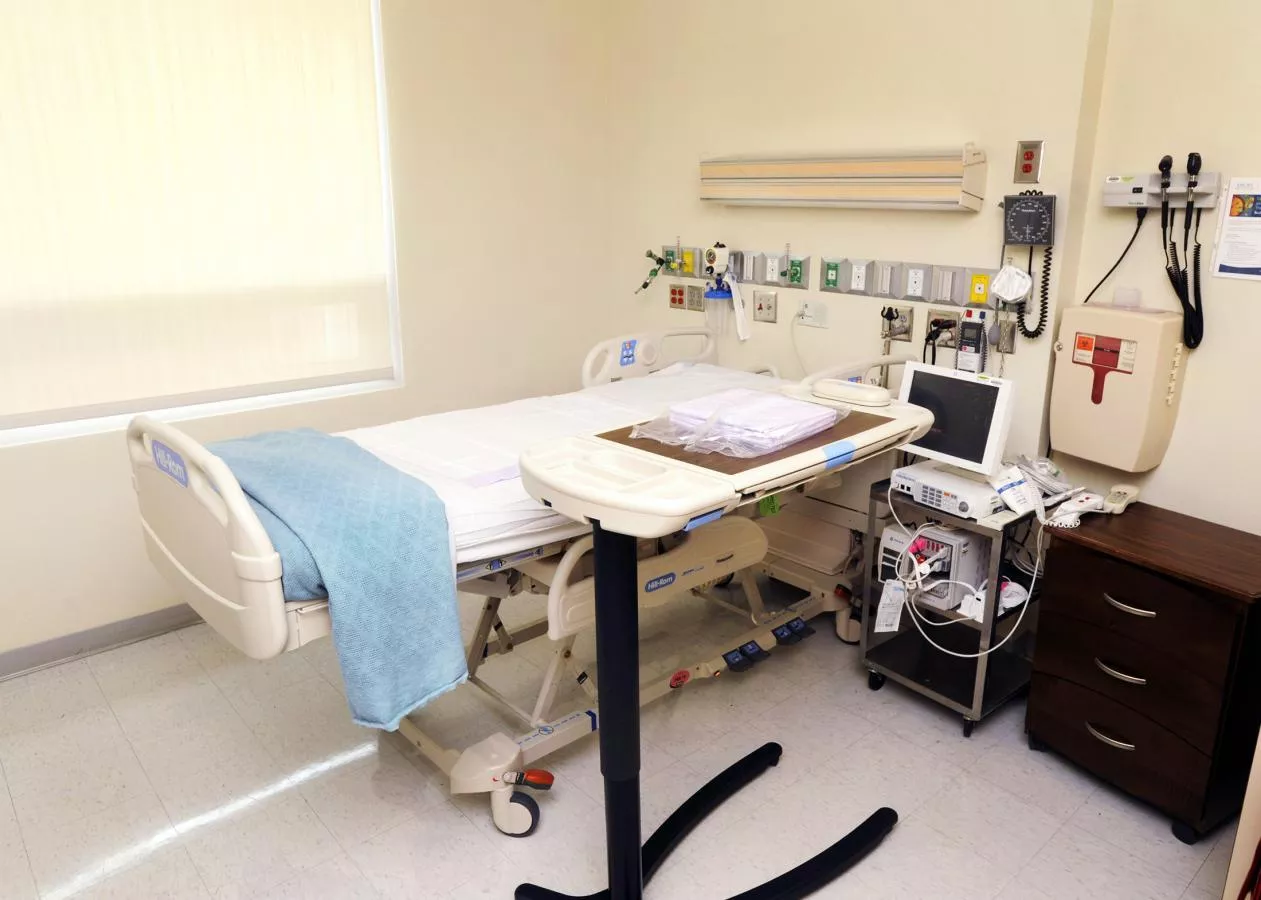Lockdown deprives critical patients of healthcare facilities in Sindh
People suffering from cancer and thalassaemia face an uphill struggle
KARACHI: As public hospitals in Sindh geared up to handle the COVID-19 emergency and moved to temporarily shut down outpatient departments (OPDs), thousands of patients inflicted with other ailments have been deprived of treatment.According to sources, authorities decided to halt OPD services at public hospitals to lower the pandemic risk, due to a lack of awareness among the masses about protective measures to contain the coronavirus. However, as a result, thousands of patients in Sindh have nowhere to go for the treatment of their conditions. Most patients are not even accustomed to the use of tele-medicine, because of which their problems are getting worse day by day.
Per estimates, OPD services at Dr Ruth Pfau Civil Hospital Karachi cater to 7,000 patients daily, the Jinnah Postgraduate Medical Centre (JPMC) provides treatment to 8,000 patients, Lyari General Hospital attends to 3,000 patients, the National Institute for Cardiovascular Diseases handles 7,000 patients, and Abbasi Shaheed Hospital caters to 5,000 patients each day.
In total, over 50,000 patients show up at 19 government hospitals in Karachi alone every day, while about 30,000 patients make their way to public hospitals and health care facilities across 28 districts of Sindh. This means that about 80,000 citizens have been deprived of OPD services at public hospitals.
Cancer and thalassaemia patients - the worst affected
Apart from the suspension of OPD services at public hospitals, the treatment of serious diseases, such as cancer and thalassaemia, which requires regular blood transfusions, have also been moved to the back burner for the time being.
What’s more, the COVID-19 scare has also drastically reduced the number of blood donors who serve as a critical source of treatment for thalassaemia patients.
Speaking to The Express Tribune, Dr Tahir Shamsi, renowned haematologist and the head of National Institute of Blood Diseases, said that the coronavirus poses serious risks to the lives of patients with underlying medical conditions or other diseases.
“The lockdown has dramatically reduced the trend of voluntary blood donation because of which O positive and O negative blood groups have disappeared from blood banks,” he said. “Moreover, the suspension of OPDs in public and private hospitals have caused serious problems for cancer patients.”
Reports show that Pakistan has over 100,000 children suffering from thalassaemia, out of which 45,000 hail from Sindh and Balochistan. Saving the lives of children inflicted with blood diseases has become a challenge for medical practitioners owing to the dearth of blood donors.
According to doctors, thalassaemic children in Sindh need nearly 150 blood transfusions per month, while a total of 1.8 million blood transfusions are needed across the country every year to meet the demand.
The head of the oncology unit at Dr Ruth Pfau Civil Hospital, Dr Noor Muhammad Soomro, said that each day, around 70 cancer patients visit the hospital’s OPD.
“The closure of the OPDs of all hospitals is complicating the case of many patients, especially those suffering from blood cancer. Moreover, many cancer patients are also hesitant to visit the hospital because they are more vulnerable to contracting the virus,” she said.
“My mother is suffering from second-stage breast cancer and had just completed her chemotherapy sessions when the outbreak occurred,” said the son of a patient, who chose not to be named. “We had to take her for her radiation therapy but hospital authorities told us that it is risky to bring her to the hospital in this condition, therefore, it’s better to keep her at home for now.”
Delayed treatments
With the coronavirus emergency in place throughout the country, routine operations at government hospitals have also been delayed. There has been a tremendous decrease in the amount of vaccinations while pregnant women are also facing severe problems.
“In public hospitals, routine checkups, x-rays, ultrasounds and minor operations have been deferred until the situation normalises,” an administrative official at the Dr Ruth Pfau Civil Hospital, who spoke on the condition of anonymity, said.
Owing to the closure of OPDs at public hospitals, poor patients suffering from other diseases are forced to visit private clinics because of which they are also undergoing severe financial strain.
Ali Imran, a vegetable vendor, said that he had to take his wife for an x-ray to a private clinic, which cost him a lot of money.
“I am a daily-wage worker and facing financial problems as it is. With additional medical expenses together with the scare of the virus, life for poor people has become a living hell,” he said. “I hope the situation gets better soon so that we can go back to our normal lives. Otherwise, we won’t be able to survive.”
Published in The Express Tribune, April 5th, 2020.


COMMENTS
Comments are moderated and generally will be posted if they are on-topic and not abusive.
For more information, please see our Comments FAQ